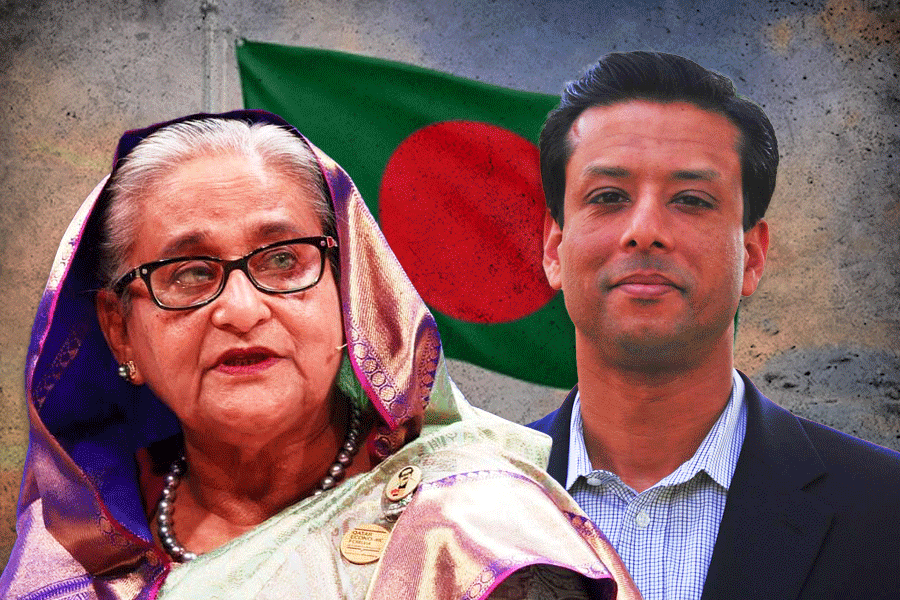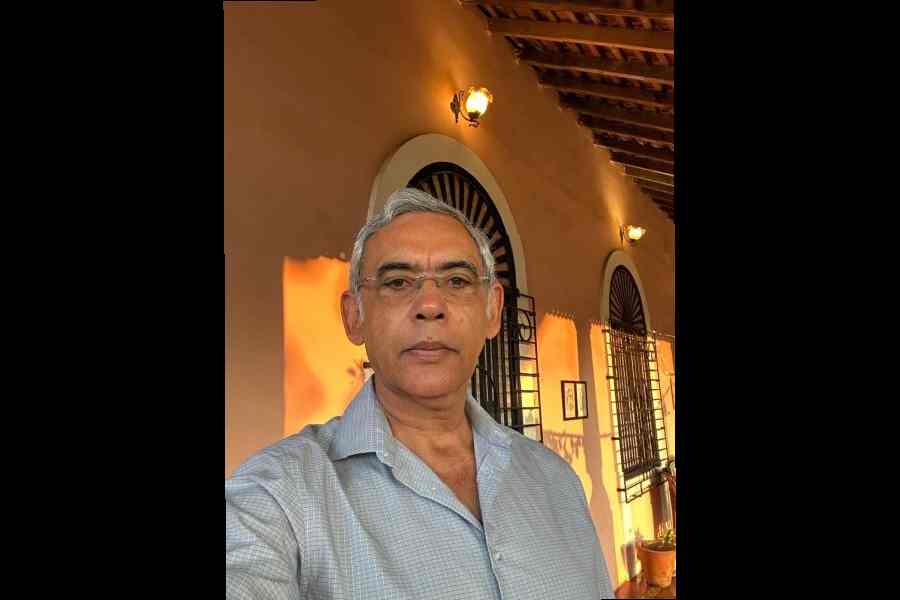Legendary South African cricketer Jonty Rhodes was in town on March 8 for a session organised by the Young Leaders Forum, aptly titled ‘Ignite Your Game with Jonty Rhodes’, which took place at the Taj Vivanta on the EM Bypass. Sharing his philosophies on cricket and life, as well as his connection with India — which he attributes to the warmth of the people and the lessons he has learned along the way in the country — Rhodes spoke for more than an hour on his experiences as a player and a coach. After addressing the audience personally for half an hour, Rhodes sat down for a chat with the chairmen of YLF, Sagar Agarwal and Pratiik Jalani. The conversation that followed was a deep dive into Rhodes’s perspectives on leadership, resilience, and the evolving landscape of modern cricket.
Life in India: Simplicity and Connection
Rhodes has been living in the south of Goa for the past two years. “Both my children were born in India. My daughter is named India, too,” he shared at the session, going on to highlight that his family has chosen to adapt to a life of simplicity. This minimalist lifestyle is a conscious decision. “There’s hardly anything in Agonda (where he lives). It’s a little fishing village. We live in a 2BHK, we don’t even have a table! We eat at home; we sit on the floor, which is the coolest part of the house — we don’t even have an AC; we just use fans, and that’s just to keep the mosquitoes away, more than anything. And we absolutely love it this way, because it’s the simplicity that allows us as a family to really connect and spend amazing times together. The quality of life that we have together is really incredible. For us, it’s about health and wellness, being outside, and being active, and Goa is a key component to that.”
Spending Time as a Family
Rhodes admitted to not having a television in his house, and therefore not being in a position to sit on a couch and watch cricket for hours on end on the screen. “We don’t watch TV. We don’t have a TV in the house, so no one actively watches cricket or sports on TV in my family. Besides, I’m not too keen on having my children spend a lot of their time on screens. And so I don’t think it would be fair if we did have a TV for me to sit around the house and watch cricket all day. I’m not concerned about whether or not or even how my children know me as a cricketer. I’m more concerned about whether and how they know me as their father. That’s what I’m most concerned about, rather than them being able to say, ‘Oh, my dad used to play cricket 20 years ago,’ he shared with the audience, which brought on many claps and whoops of appreciation from the house.
An International Son of India
Rhodes has spent so much time in India that he jokingly considers himself an honorary citizen. “I keep looking and expecting to be given citizenship, but nothing’s arrived in the post yet,” he laughed. His connection with India runs deep, perhaps reflected best in the name of his daughter, India. “My wife Melanie and I named India India for very different reasons. For Melanie, it was all about spirituality — she’s a yoga teacher, practices Vedanta philosophy, and she’s very spiritual. And the first time we met 13 years ago, I said to her, ‘Listen, we have to come to India’, because this is where I have spent half of my life. So she was always desperate to come to India. So for Melanie, India’s name of India is because of that spiritual connection that she has with the country. For me, it was a case of riding my Enfield every day at Nariman Point, going to practice at Wankhede Stadium with Mumbai Indians. As a cricket player, you’re always taught you’ve got to not only seize the day, but to take it. No one’s going to give it to you. And just through my travels in India, I realised that it’s more a case of you needing to embrace the day, rather than anything else. I wanted India to know that whatever happened, I would embrace and accept her, and I needed her to know as my daughter that whatever she chose, this is her journey, and every day I would embrace and support that.”
Cricket: Beyond Runs and Wickets
Rhodes is known for revolutionising fielding at a time when it wasn't given as much importance. “Amazingly, I have a Bachelor of Commerce degree, and I was the number one fielder in the world because there was no number two or three. Nobody else wanted to field,” he recounted, adding that he was a good fielder at school. “I was renowned for it. I had this incredible energy which is still going. It’s very difficult to turn that off.”
“Playing to your areas of strength and passion certainly allows you to break into the scene and lead from the front. At least, that’s all it was for me,” Rhodes said when asked what he thought made his fielding so indispensable. “We always say that a penny saved is a penny earned, and you can either hit 50 runs or you can save 50 runs. So even if you’re saving 50 runs for your side, that’s in a way scoring those 50 runs. And fostering that mindset is very important.”
Lessons from the Field to the Boardroom
Rhodes has actively been incorporating his learnings from the field in his daily life. Most importantly, he encouraged the audience to also inculcate a positive, can-do approach in both their life and work, which he said would automatically help them achieve success, either literal or spiritual, regardless of the circumstances. “Too often in business and in sport, it’s that one run that can make all the difference,” Rhodes said. “Of course, it’s easy to recognise the sexy stuff, because we see it, and we love the skill factor coming into it. But who’s doing that one run behind the scenes when the lights are not on and the cameras are not rolling? Who’s making a contribution that no one else has even seen? That’s important. Energy takes a team down as much as it takes a team up. So we try and keep that energy going up as much as possible. And the way we do that is by recognising and appreciating that one run. And it might not even be on the field. The sexy things only come once every four years. So if you hang your business on that, you’re in trouble. But that small thing, that one run, you can do it every single day. That’s the beauty of it. It helps you see the little things that count.”
The Power of Anticipation
Rhodes also spoke about the importance of letting go of things outside of one’s control and instead choosing to focus on what one can actually influence. “Of course, you must focus on what you’re doing and any obstacles and opportunities at hand, but how do you see the bigger picture? It’s the bigger picture that often gives you insights of where you should be going. And then once you’ve committed, just go in that direction. The things that are outside your control — whether it’s business or community or anything else — you have no control over, so don’t spend your energy wasting time concerned about it. Focus on what you can control.”
“It’s about understanding your environment,” Rhodes explained, when asked to elaborate on his fielding skill. “You need to understand your environment more than anything else. And it’s not so much about reflexes. I don’t have faster reflexes than other people on the field. If I did, I’d be a much better batter. I just have good anticipation. Anticipation is expecting every ball to come to you, and being able to respond because you’ve worked out what might happen in that particular environment. That’s what anticipation is about. Expecting every ball to come before it actually gets to you. I played a Masters League game recently. I know my speed wasn’t what it used to be, so I planned my moves in advance. That’s how you stay ahead.”










